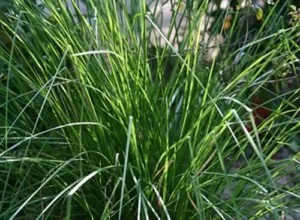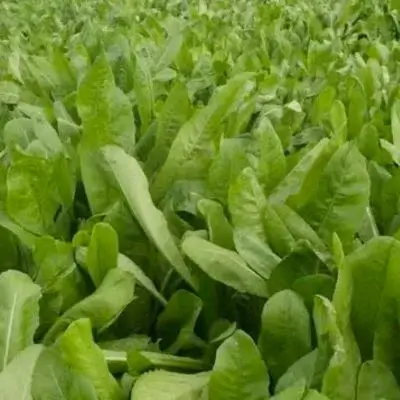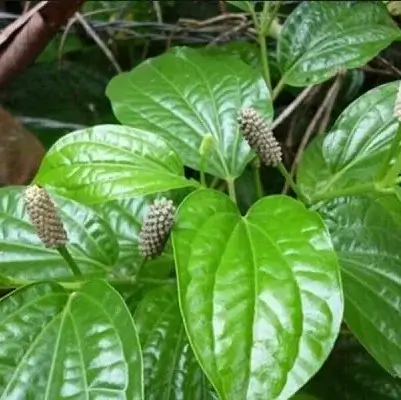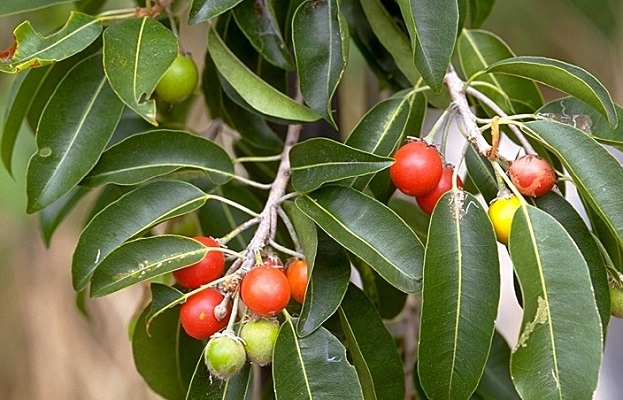On This Page
Usira – Vetiveria zizanoides
Introduction
Usira commonly known as cuscus grass is an ayurvedic herb which is a densely tufted perennial grass with spongy aromatic roots. It is also known as‘Naladham’due to its pleasant aroma. The botanical name Vetiveria zizanoides came from the words vetiver meaning aromatic root and zizanoides meaning growing on the river side. Ayurveda has mentioned this herb from the ancient times in various ailments as well as for using in religious ceremonies. Dr. Gupta’s IAFA has utilized this herb in unique skin rejuvenation combinations and for various skin disorders including allergic conditions.
Various experiments have proven the actions of this drug like Antimicrobial, antiallergic and antipyretic. It is a Vata and Pitta dosha reducing herb (alleviates vata and pitta dhoshas) and due to this, it is used widely in the diseases arising due vitiation of rakta(blood) and kushta(allergic skin diseases), which are said to have predominant vitiation of Vata and Pitta dosha. The root of Vetiveria zizanoides contain ethanol and have anticonvulsant actions. The most commonly used plant part is the roots and its exhibits many therapeutic actions. The extracts and fractions are found to be effective against Mycobacterium tuberculosis. The ethanolic extract and hexane fraction have potent antimycobacterial activities. The root also found to have excellent antioxidant activity. Due to its high therapeutic value, it is one of the most commonly drugs in Allopathic and Ayurvedic science.
Action of Vetiveria zizanoides or Usira in Allergy
Phytoconstituents naturally found in Vetiveria zizanoides are mainly isobisabolene, khusol, husinol, khusilal, isokhusimol etc and are having the properties like antimicrobial, anti allergic and anti pyretic functions. Usira helps to purify vitiated blood by it’s detoxification action, which in turn result in pacification of diseases originating from vitiation of blood. The herb is grown within a residence area to add coolness to the surroundings as well as coolness to the body and mind. The practice of growing this herb within a residence area helps in prevention of various ailments including skin allergies.
Vernacular Names
| Hindi name | Khas, Usheer |
| Sanskrit name | Nalada, Amrnala, Veerana, Virani, Veeratara, Valaka, Balaka, Truna Valukam Mulakam Abhaya, Ranapriya, Virataru, Haripriya, Jalavasa, Jalaamoda, Mrunal, Mrunal, Samagandhika, Sugandhamula, Bahu Moola, Sheet Moola |
| English name | khas khas grass, Kus Kus grass, Vetiver |
| Bengali name | Khaskhas, Venaghas |
| Tamil name | Vettiver, Vetivera |
| Malayalam name | Ramachan |
| Gujarati name | Valo |
| Kannada name | Lavancha |
| Marathi name | Vala |
Botanical Name
Vetiveria zizanioides (Linn.) Nash
Family
Gramineae
Phytomorphology of Usira – Vetiveria zizanoides
Vetiveria zizanioides is a perennial growing grass of height up to 2 meters.
It is frost tender. This species is hermaphrodite (has both male and female organs). It prefers moist soil and can grow in semi-shade (light woodland) or no shade.
Ayurvedic Reference of Usira

Phytogeography of Usira – Vetiveria zizanoides
Usira listed as “Coolant” herb in Ayurveda, found along the banks of streams, backwaters, and also cultivated. It’s widely distributed in India, Myanmar and Sri Lanka.
Phytoconstituents of Usira – Vetiveria zizanoides
Vetiveria zizanoides chemically contains Allokhusiol, Benzoic acid, Cyclocapacamphene, Epikhusinol, epizizanal, 2- epizizanone, B eduesmol, Eugenol, Is Khusimol, Isokhusinoloxide, Isovalencenol, Isovalencic, Khusimol acetate, Khusinodiol, Khusinol, Khusitoneol, Laevojujenol, Levojunenol, Vanillin, Vertiselinenol, B-& J vetivene, Vetivenic acid, vetiverol, Zizaene, Zizanol etc.
(Reference: From Dravyaguna Vigyana, Vol. II, by Dr JLN Shastry)
Parts Used of Usira – Vetiveria zizanoides
Usheeraasava is used in excessive thirst and sweating.
- Ushira Root
- Vetiver Oil
Dosage of Usira – Vetiveria zizanoides
- Powder (choornam) – 3-6 gm per day
- Juices (swaras)–30-40 ml two times a day
- Decoction (Kwath)– 50-100-ml two times a day
Medicinal Properties and Uses of Usira – Vetiveria zizanoides
- In Gastritis and heartburn: stimulates Digestive enzymes, relieves burning sensation in stomach.
- Anti-pyretic: useful in fever
- Piles and Fistula: useful in bleeding disorders and abscess
- Aromatic Use: relieves excessive thirst, sweating and bad odor from the body.
- In Renal Diseases: Relieves burning micturition (dysuria), urinary retention, acts as diuretic
- Neuro-protective: useful in treating disorders of Vata Dosha imbalance such as anticonvulsant, neuralgia and paralysis etc
- Anti-emetic: relieves vomiting
- Food allergy: Anti-toxic, eliminate Ama Dosha (toxins) from the body
- Skin Diseases: leprosy, heal wounds quickly and relieves burning sensation on skin by external application.
- Eye allergy: relieves burning sensation in eyes

Have A Health Issue?
Consult Online
- Dr. Sahil Gupta (B.A.M.S., M.H.A.)
Ayurvedic Allergy Specialist
CEO & Founder of IAFA®
Home remedies of Vetiveria zizanoides or Usira
Ayurvedic herbs have achieved a great popularity among the people by showing clinical evidence against various diseases. The side-effects causing modern drugs are replaced by natural solutions. The practice of natural measures increased the demand of magical herbs like Usira. The fine powder of Usira root has a general anti-inflammatory and analgesic effect on the wounds and skin disease.
- Effect in fever: Usira is one of the ingredients in shadanga paniya which constitute six herbs and efficacious remedy in fever.Ingredients of Shadangam Kashaya : -Ghana/Musta (Cyperus rotundus) -Chandana (Santalum album) -Shunti (Zingiber officinale) -Ambu/Udeechya (Coleus vettiveroides) -Parpataka (Fumaria indica) -Usheera (Vetiveria zizanioides)
- Used in vomiting: Vomiting patient has to take Balaka(Pavonia odorata) and usira with rice water. It checks vomiting.
- Healing ulcers: Its root fine powder has a general anti-inflammatory and analgesic effect on the wounds and skin disease.
- Used to relieve thirst: The roots of usira have excellent medicinal properties. The root is crushed and boiled in water and can be used to relieve thirst.
- Used in Diabetes mellitus: Usira root is collected and crushed and made into decoction along with Haridra(Curcuma longa) and Amalaki(Embilica officinalis) is used in Diabetic conditions.
- Skin diseases: The paste made by crushing the roots Usira along with Neem (Azadiracta indica) is applied in the skin and it reduces skin diseases.
- Used to avoid foul smell: Vetiveria zizanoides have excellent aroma. The smoke generated by burning the roots can be used to avoid foul smells.
Dr. Gupta’s effort in popularizing Ayurveda has achieved great success by providing original herbal solutions to a nnumber of Ayurveda followers. IAFA is conducting vast scientific researches for establishing the scientific importance of all the Ayurvedic herbs.
All herbs used in the products of IAFA is selected through high level quality check to assure maximum benefits to our followers.
Follow IAFA and feel the difference!!!
Was this Page Helpful?
Read More Articles

Kasini (Cichorium intybus)
Know about the uses, benefits, and medicinal properties of Chicory, Kasini (Cichorium…









